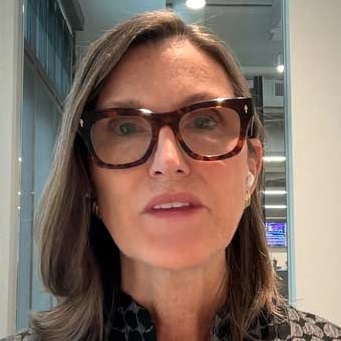Jon Hale: Hi, I'm Jon Hale, director of sustainable investing research at Morningstar, and with me today is Lisa Woll, CEO of US SIF, the Forum for Sustainable and Responsible Investing, who is having their annual conference in Chicago this week.
Lisa, welcome.
Lisa Woll: Thanks, Jon. It's great to be here, great to be at Morningstar, and great to be in Chicago.
Hale: Well, good to have you here. Tell us a little bit about the conference. What's the main theme of the conference?
Woll: Well, the theme, which we chose probably about 10 months ago, is, a New Climate for Investing in Impact. And the idea of it was to talk about climate change as a primary issue, although not the only issue, as well as we knew we'd have a new administration. I don't think we knew 10 months ago how apt the title would be in terms of the sort of tsunami of change that we anticipate may be coming, both on climate and on many other issues that we care about.
Hale: So, what would you say is the main impact so far of the new administration on the sustainable investing climate, I guess, you could call it?
Woll: So, I always think about that in two buckets, because when we put out our trends report last November, right after the election, and the first question I got from journalists is, what is the impact of this election? And the truth is, given the growth in sustainable or ESG assets over the last several years, I think no matter who is elected, we would have continued to see that growth. There's just tremendous interest.
So, I don't think that this administration will have a deleterious effect on it. In fact, I think it might have a positive effect on ESG investing because this administration will close off in many ways the federal government as a place to go for environmental and social advances. And so, what you're left with really is the private sector and states. And so, in a way it may drive more investment into the space which we're hearing, sort of from different asset managers, because people are concerned about ways they can affect issues that they care about.
And on a policy front, we're sort of dealing with every day as a new issue we have to address. And so, we've really moved into sort of more a defensive mode in terms of keeping things going that we care about: climate initiatives moving forward, Dodd-Frank not being pulled back, those sorts of issues. Making sure the SEC continues to function for investors and the shareholder process continues. So, there's multiple impacts, but the ESG growth we're not concerned about; the policy piece we're more concerned about.
Hale: Yeah. I mean, it's interesting because it seems like the catalysts in many ways for the heightened levels of interest in sustainable investing, say, over the last 10 years or so, have been the financial crisis and the climate change.
Woll: Correct. Right. Financial crisis, climate change, another issue that people really use in the shareholder process is political contributions as a result of Citizens United. So, I think that the interest in climate, the fact that we've already pulled back from the Clean Power Plan that an announcement on pulling back or out of Paris is imminent, we're told, is really going to push more investors into looking at clean energy and alternatives in the investment process, because there will not be a national framework on climate in the next four years.
Hale: Yeah. So, we've heard a lot about of the phrase or the term impact in the context of sustainable investing. What is meant by that?
Woll: Well, I think, what's happening is the field for the last 25 years has been focused on impact. So, whether you're working in the public equity markets and screening in companies, who are the better actors or screening out bad actors, or bringing a shareholder resolution, you're making impact.
What's happened in the last few years is that you've had more emphasis on other asset classes, so, fixed income, private equity, which we think is fantastic because we think sustainable or impact investing should be able to be done across a whole portfolio. And impact really does mean how do you invest to make social and environmental change. And the word impact has been taken up in the last couple of years, which we use as well, and we take it to mean really the same thing as sustainable or responsible investing.
Hale: But it's very resonant, I think.
Woll: It's very resonant. And so, if the word works, we're happy to have it.
Hale: Great. Lisa, thanks for being with us today. Have a great conference.
Woll: Sure. Thank you for having me. Thank you.



























